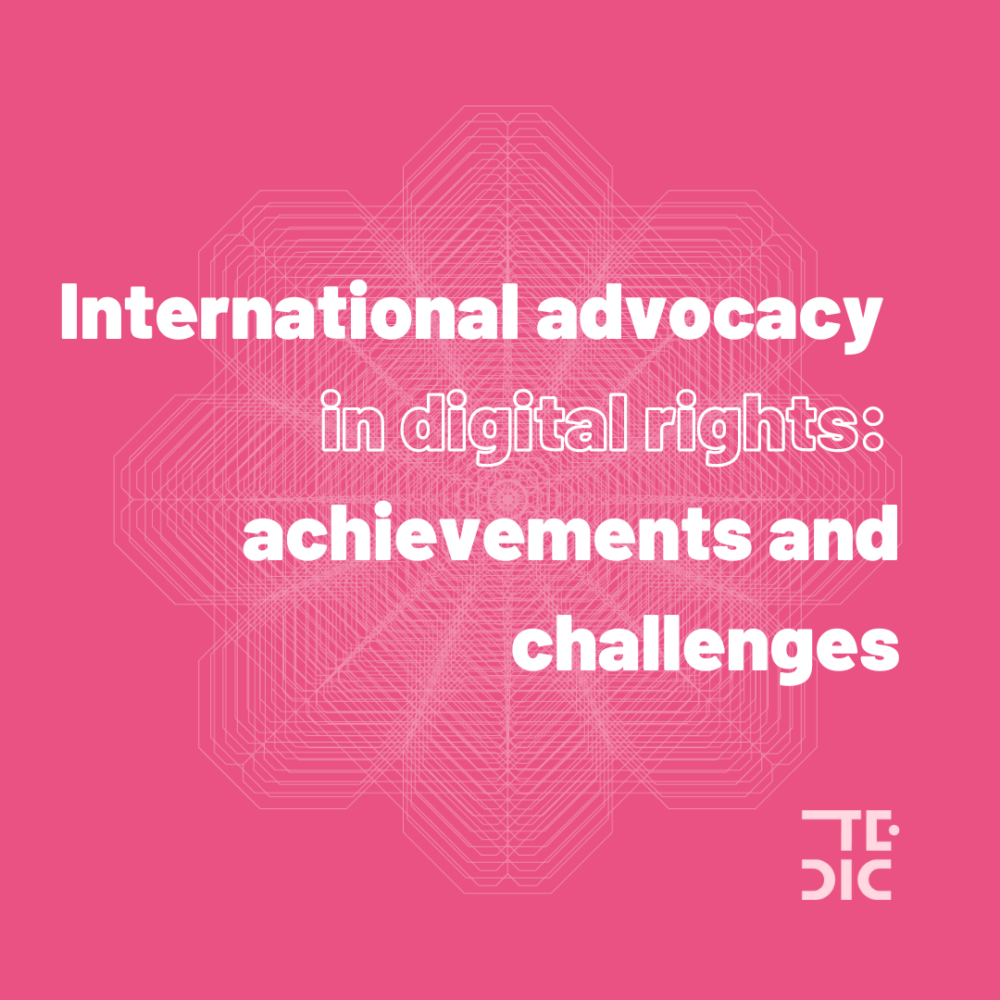
TEDIC International Advocacy: January to May 2024 Our commitment to the defense of digital rights is not limited only to the national level. Complementing our national advocacy initiatives, we also actively participate in various international spaces and events, seeking to influence the creation of public policies that protect and guarantee human rights in the digital environment. Below, we present a summary of our international advocacy activities conducted between January and May 2024, organized by month:
February: connecting identities and human rights
In February we had the opportunity to participate in the World Conference on Statelessness1, a global event that addressed the problem of statelessness2, that is, people who do not have the nationality of any country, from various disciplines and approaches. Our participation was part of the global meeting of the Digital ID Coalition, of which we are part. This event facilitated crucial discussions on the intersection of statelessness with digital identity3 and the growing importance of public digital infrastructure (DPI). DPI, although still without a single definition, refers to state digital infrastructures that promote financial inclusion, connectivity and identity, with some definitions extending this inclusion to the private sector.
March: gender equality and the fight against violence facilitated by technology (VFT)
March was a month of intense activity for TEDIC in the field of gender equality and digital rights. Within the framework of the NGO Committee on the Status of Women (NGO CSW68)4 in New York, we co-led two key events:
Workshop on “Perpetrators and evaluation of tools against online gender violence” – New York
This workshop allowed us to collect feedback and work on a roadmap for future research on perpetrators of technology-facilitated gender-based violence. The development of this roadmap is carried out by TEDIC in alliance with different member organizations of the Women Rights Online Coalition (WRO) of the Web Foundation. Representatives of civil society, academia and the main technological platforms such as Google and Meta participated in this event.
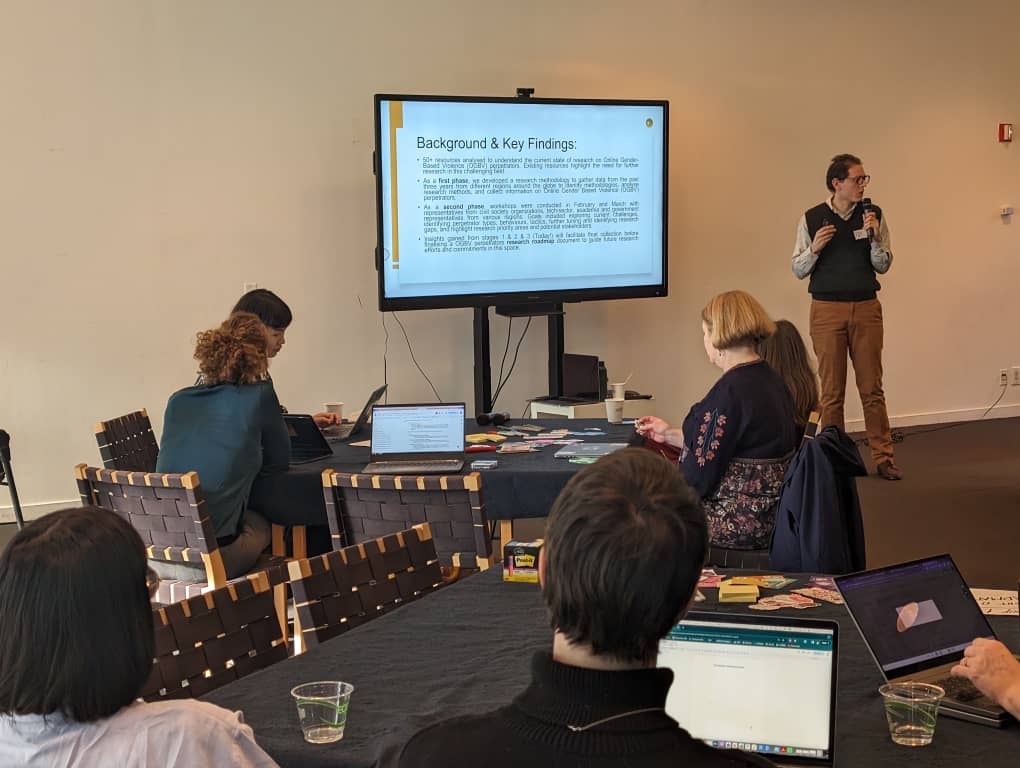
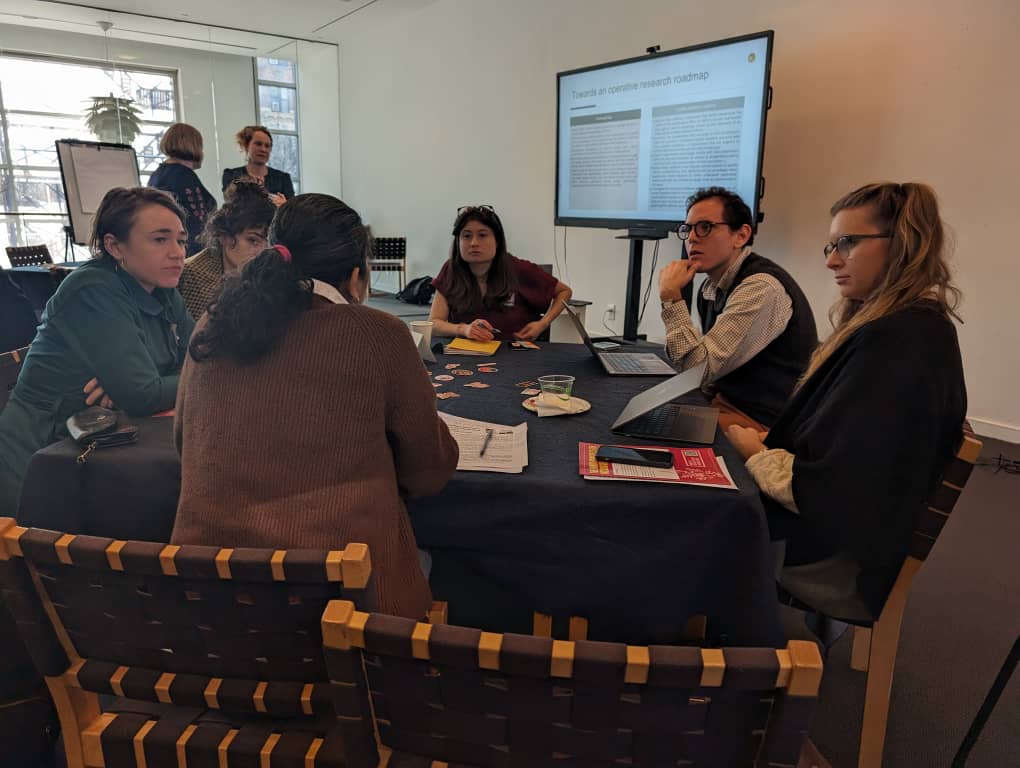
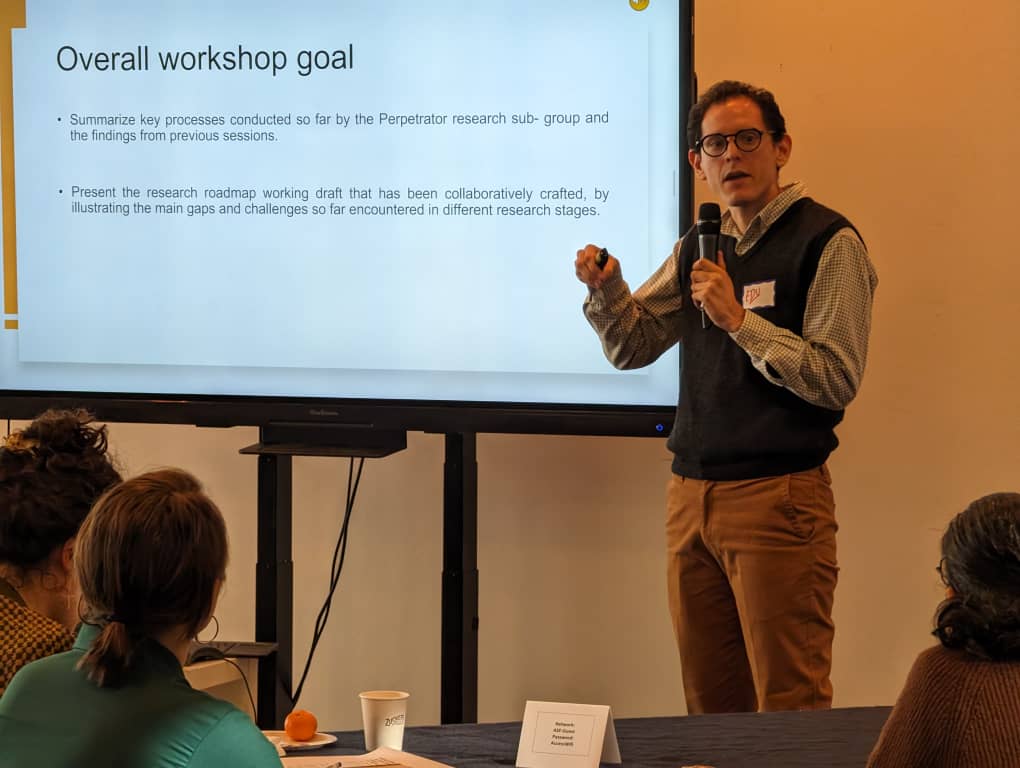
Expanding the fight against online gender-based violence (OGBV): addressing digital exploitation alongside male allies in technology in Global South contexts – New York
In collaboration with the National Democratic Institute (NDI) and the Breaking Silence Movement, this meeting focused on reflecting on various strategies to include more allies in the fight against gender-based violence facilitated by technology. At TEDIC we share various advocacy strategies through our investigations, strategic litigation, communication campaigns and capacity development of public and private actors to generate greater awareness about the problem of gender violence facilitated by technology and the cost it has. in the lives of women, girls and people from the LGTBIQ+ diversity group who suffer from it daily.
April: regulation of autonomous weapons, transparency on the Internet and human rights in digital environments
Digital Rights and Inclusion Forum 2024 – Online
On April 23rd, 2024, we participated in the Digital Rights and Inclusion Forum 2024 (DRIFT 2024) in Accra, Ghana. Participation took place in a virtual format and through a panel titled “Addressing Internet shutdowns from a mixed-methods approach” in alliance with the organization Fundación Karisma (Colombia) and University College London (United Kingdom). The panel generated a series of reflections on how to document Internet outages from a mixed methods approach, combining quantitative and qualitative methodologies to obtain a multi-sector understanding of the phenomenon. Our participation emphasizes our commitment to the protection of digital rights and inclusion in a global context where Internet access and freedom of expression are at risk. Participation also served as a space to connect research5 and resistance experiences on the topic in Latin America and Africa.
Meetings between governments and civil society on regulation of autonomous weapons – Vienna
April was also a significant month in our fight and advocacy, both nationally and internationally, for the regulation of autonomous weapons6. At the end of the month, together with a Paraguayan delegation composed of state and TEDIC representatives, we actively participated in two important events in Vienna focused on the future and regulation of autonomous weapons.
In the first event, the forum “Action at the Crossroads: Civil Society Forum on Autonomous Weapons and the Challenge of Regulation”, Leonardo Gómez, coordinator of democracy and technopolitics projects, represented TEDIC in a panel called “Fusing art and activism.” In this forum we shared our exhibition “Re(x)istentes to digital dehumanization” highlighting the role of artistic exhibitions and other creative media in promoting disarmament and peace education. During this event, we also socialized the statement issued by the civil society of Paraguay.
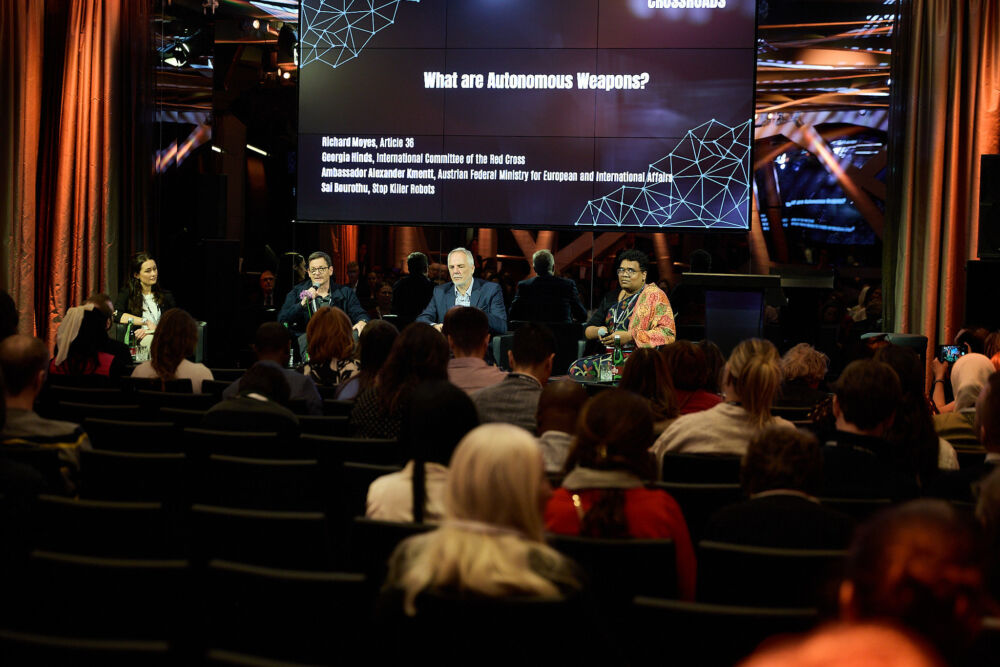
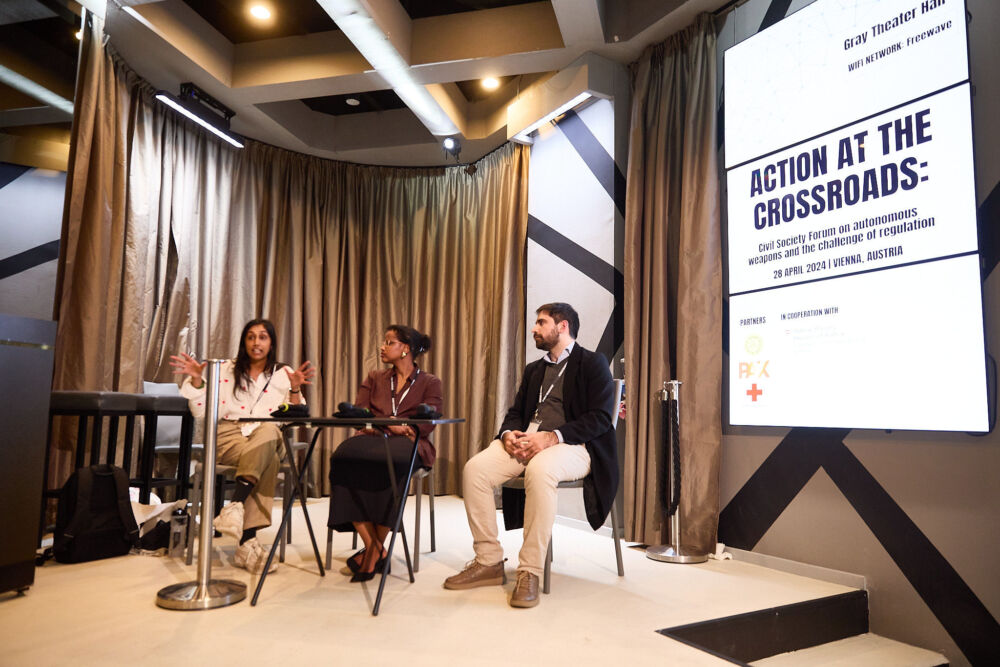
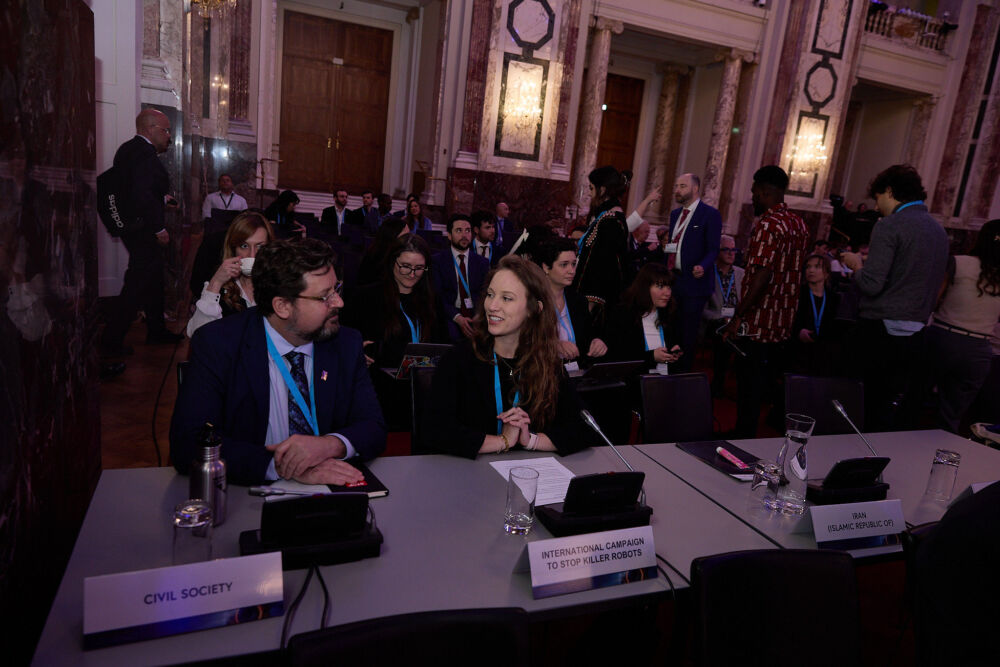
Additionally, we participated in the main event, “Humanity at the Crossroads: Autonomous Weapon Systems and the Challenge of Regulation”, organized by the Federal Ministry for European and International Affairs of Austria. This event brought together member states, representatives of the UN, the International Red Cross, and various international organizations. Discussions ranged from the legal and ethical implications to the humanitarian and security consequences of increasing weapon autonomy through artificial intelligence. In this phase of the event, we participated as representatives of Paraguayan civil society together with Admiral Cíbar Benítez, Minister of the National Defense Council (CODENA) and representatives of the Permanent Mission of Paraguay in Vienna.
These discussions come at a crucial time, following the UN Secretary-General’s recent call urging member states to consider the challenges that autonomous weapons present to global society. This call echoes previous resolutions of the United Nations General Assembly, where an overwhelming majority of states emphasized the urgency of addressing these issues.
NETmundial+10 – Sao Paulo
Simultaneously, on April 29th and 30th, 2024, NETmundial+10 took place in São Paulo, Brazil. This meeting aimed to review and build consensus on a document developed openly and collaboratively by stakeholders from different countries around the world. The event was organized by the Brazilian Internet Steering Committee (CGI.br) and led by a group from the High-Level Executive Committee (HLEC).
At TEDIC, we collaborate in the prior consultation stage in alliance with four other organizations in Latin America, through AlSur7. Maricarmen Sequera, co-director of TEDIC, was in charge of working on this document and participating in the meeting in Brazil. During two days of meetings, each stakeholder reinforced their comments, getting civil society to include detailed aspects of how Internet governance should work.
Highlights of the document include:
• Reaffirmation that the Internet is a global resource that should be managed in the public interest.
• The continued relevance of the 10 principles for Internet governance processes adopted in 2014, extending their applicability to address emerging digital policy challenges.
• Operational guidelines for implementing these principles in various contexts.
• Contributions to various ongoing processes on the evolution of governance architecture for digital issues.
• Encourage meaningful collaboration of stakeholders at different stages of decision-making processes, especially in multilateral digital policy mechanisms.
• Generate spaces for discussion, transparency, clarity in results and capacities in the governance system.
The result was very positive, being the first document that proposes ways of working with multiple stakeholders. The final document aims to be a guide for the implementation of new processes and to become a contribution to existing Internet processes.8
G20 Dialogue on Information Integration – Sao Paulo
During April 30th and May 1st, parallel to NetMundial, the G20 global thematic meeting on information integration was held in São Paulo. From TEDIC we participated in the first day of the event, focused on the central discussion on misinformation. The agenda addressed the challenge of mitigating misinformation through conversations among multiple stakeholders from around the world, including public policy makers, civil society and academy.
The central ideas of this thematic axis were:
- What issues should unite the Global South in the debate on information integrity?
- Which common issues among our countries should be prioritized on a joint agenda?
- What other forums are necessary for our countries to address this problem together?
- Are current spaces, including existing multilateral forums and coalitions, sufficient?
Our participation in this dialogue underscores our commitment to promoting information integrity and combating disinformation, working collaboratively with global actors to find effective and sustainable solutions.
May: Fighting for Press Freedom and Expression
May was a month of intense activity on the international stage, with a particular focus on freedom of expression and digital rights. During this month, we participated in key events such as the 31st World Press Freedom Day Conference in Santiago, Chile, and the Global Wiki Advocacy Meeting. Additionally, we collaborated with global organizations to address challenges at the intersection of the internet, ICTs, and human rights. Below, we present a summary of our main activities and achievements during this month:
31st World Press Freedom Day Conference – Santiago, Chile
From May 2nd to 4th, a key meeting took place in Santiago that became the epicenter of press freedom with the 31st World Conference, focused on journalism and freedom of expression in the face of the global environmental crisis.
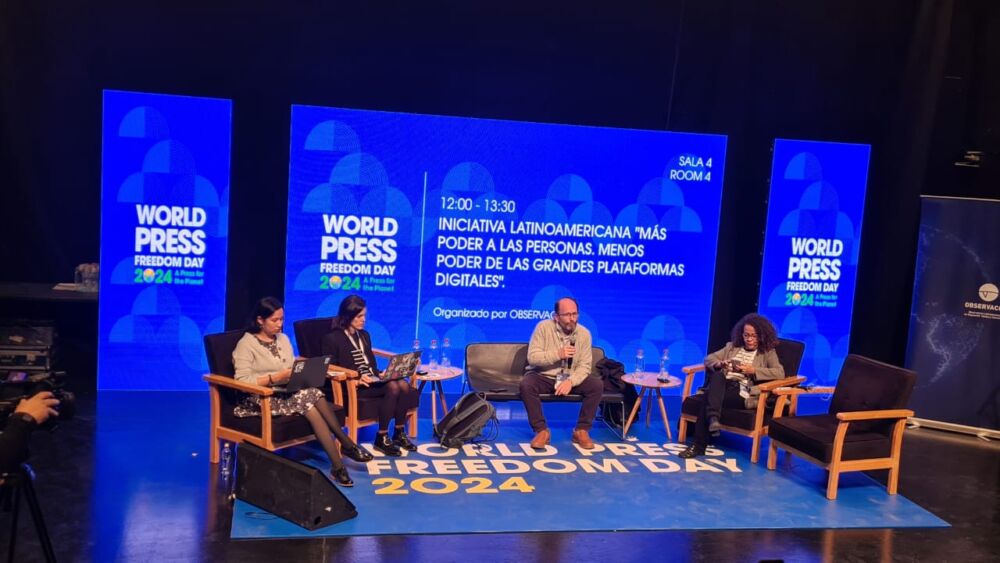
Continuing with our digital rights agenda, we participated in the panel “Iniciativa latinoamericana: Más poder a las personas, menos poder de las grandes plataformas digitales” (Latin American Initiative: More power to the people, less power to the big digital platforms), a regional proposal to promote regulation of large digital platforms, aiming to strengthen the exercise of freedom of expression and public debate on the Internet.
During the panel, we shared our work on how to think about solutions from the global south for content moderation and mitigation of disinformation on large Internet platforms. The central messages of this panel were:
- Protecting freedom of expression online: Large digital platforms have significant power in our society, but their lack of control represents a risk to freedom of expression. It is crucial to set limits on your unilateral decisions to guarantee user rights.
- Transparency and responsibility: regulating digital platforms is necessary to ensure transparency in their content moderation processes and the operation of their algorithms. Its lack of transparency threatens democracy and economic development.
- Empowerment through rights: users must have more control over their online activity and access to information. Currently, these decisions are in the hands of large foreign companies, which limits participation in public debate.
- Democratic regulation: the regulation of platforms must be democratic and represent the interests of local citizens. We cannot allow decisions about public discourse to be imposed from other countries.
- Latin American voice: it is important to unite as a Latin American voice to propose effective regulations based on our realities and institutions, taking advantage of international experience but adapting it to our needs.
- Extractivist model and suffocation of local media: the large digital platforms operate under an extractivist model that exploits our data and suffocates local media. Its algorithm favors inflammatory messages, affecting our ability to reach political and social agreements.
- Platform lobby: large platforms invest resources in propaganda and lobbying to avoid regulations that protect users. Their influence can even reach the media, making it difficult to implement protective measures.
At this conference, we emphasized the need for a more inclusive and democratic approach to regulating digital platforms to protect and strengthen freedom of expression in our region.
Global Wiki Defense Meeting – Santiago, Chile
Simultaneously, from May 2nd to 4th, 2024, the first Global Wiki Defense Meeting was held in Santiago, Chile, within the framework of UNESCO’s World Press Freedom Day. Leonardo Gómez, coordinator of democracy and technopolitics projects, represented TEDIC at this event, participating in various workshops where he shared experiences from editathons with LGBTQ+9 and feminist collectives, as well as sharing our experiences in various advocacy campaigns.
The event was attended by executives from the Wikimedia Foundation globally and organizations with experience in digital rights advocacy. Discussions focused on the following key themes:
- Most important challenges for the movement: the main challenges facing the Wiki movement were analyzed and how to address them effectively.
- Wiki advocacy stories: Experiences and success stories from advocacy campaigns carried out by various groups and organizations were shared.
- Metareflection: A collective reflection on strengths and weaknesses as Wiki advocates, identifying areas for improvement and opportunities for collaboration.
- Open space workshop: This interactive workshop allowed participants to explore new ideas and strategies for the defense of freedom of information and digital rights.
This meeting allowed us to strengthen connections between the participating organizations, and provided a space for the exchange of knowledge and strategies that can strengthen the defense of digital rights and freedom of information around the world.
APC Global Gathering – Thailand
As a member organization of the Association for Progressive Communication (APC), we participated in the APC annual meeting held in mid-May in Thailand. This meeting allowed the different member organizations of the network to discuss the main challenges at the intersection of the Internet, information and communication technologies (ICTs) and human rights. From TEDIC, we co-led a discussion space with other member organizations of the network to highlight the challenges of documenting internet outages by communities exposed in contexts of protests and/or armed conflicts. We also discussed various tools available to resist intentional internet outages by the state and internet providers.
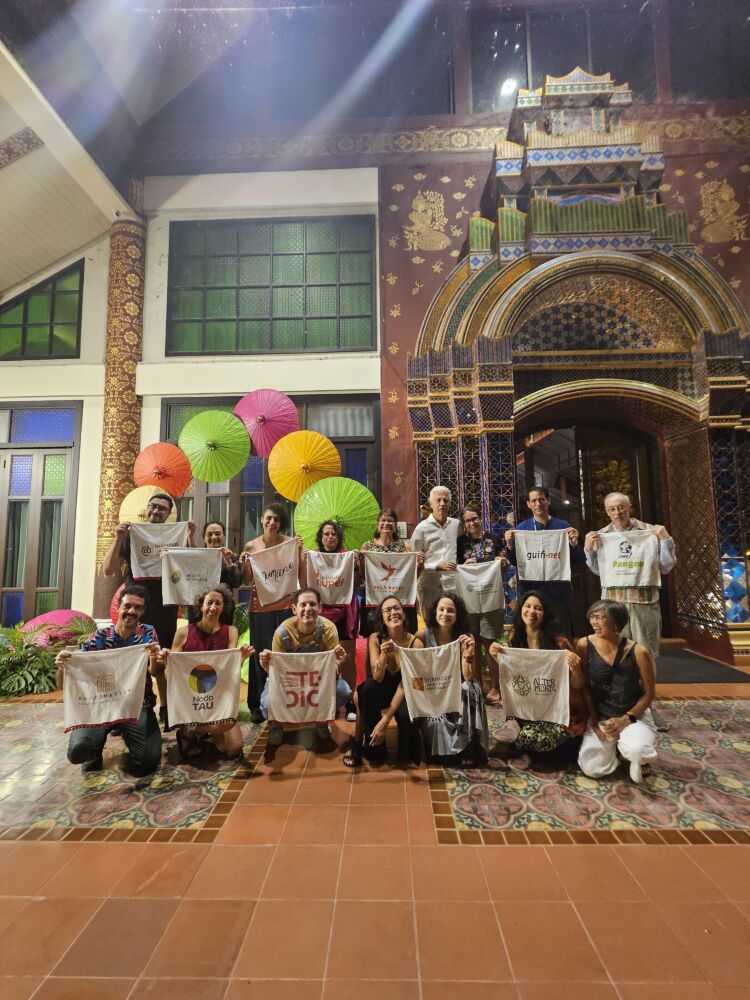
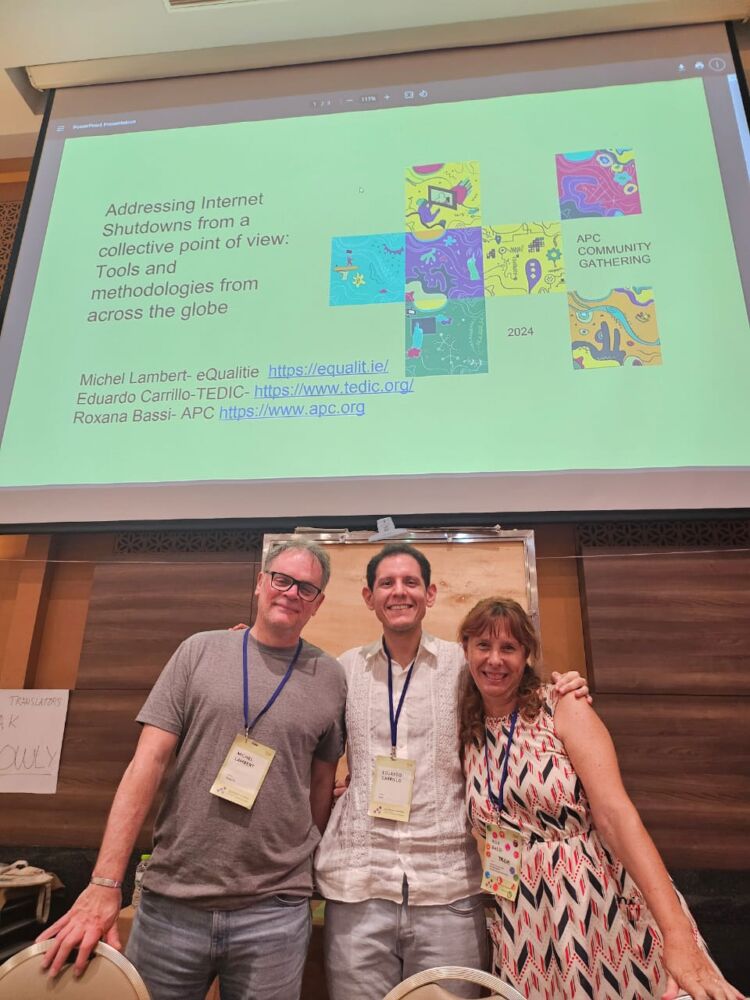
Finally, we co-led a discussion space where we reflected on the advances and achievements of civil society in the fight against gender-based violence facilitated by technology. This discussion also highlighted the long road that remains to be traveled to eradicate this problem at a global level.
During these first five months of 2024, we demonstrated a strong commitment to our international advocacy, working hard to protect and promote digital rights at various global meetings and forums. Through our participation in these key events and, through collaboration with regional and international organizations, we seek to contribute meaningfully to various discussions on Internet governance, autonomous weapons regulation, the fight against misinformation and technology-facilitated gender-based violence. In the future, we will continue to strive to ensure that public policies reflect and protect human rights in the digital environment, bringing the voice of Paraguayan civil society to the international arena.
1 The link with more information about the event, held in Kuala Lumpur in Malaysia on the Taylor’s University campus, is found here https://www.institutesi.org/pages/conference2024
2 International law defines a stateless person as “a person who is not considered its national by any State under its legislation.” In simpler terms, this means that a stateless person does not have the nationality of any country. Some people are already born into statelessness, while others become stateless.
3 For more information about digital identity in Paraguay visit: https://www.tedic.org/identidad-digital-en-paraguay/
4 For more information about this meeting https://ngocsw.org/ngocsw68/
5To delve deeper into our research on Internet Outages in Paraguay visit: https://www.tedic.org/apagones-de-internet-en-paraguay/
6 To learn more about our impact on the regulation of autonomous weapons, visit: https://www.tedic.org/instamos-a-paraguay-y-a-los-paises-miembros-de-la-onu-a-regular-las- autonomous-weapons/
8 To consult the complete document, visit: https://netmundial.br/pdf/NETmundial10-MultitakeholderStatement-2024.pdf
9For the history of the LGBTIQ+ pride marches in Paraguay we added to Wikipedia visit: https://www.tedic.org/sumamos-historias-tlgbiq-a-wikipedia/

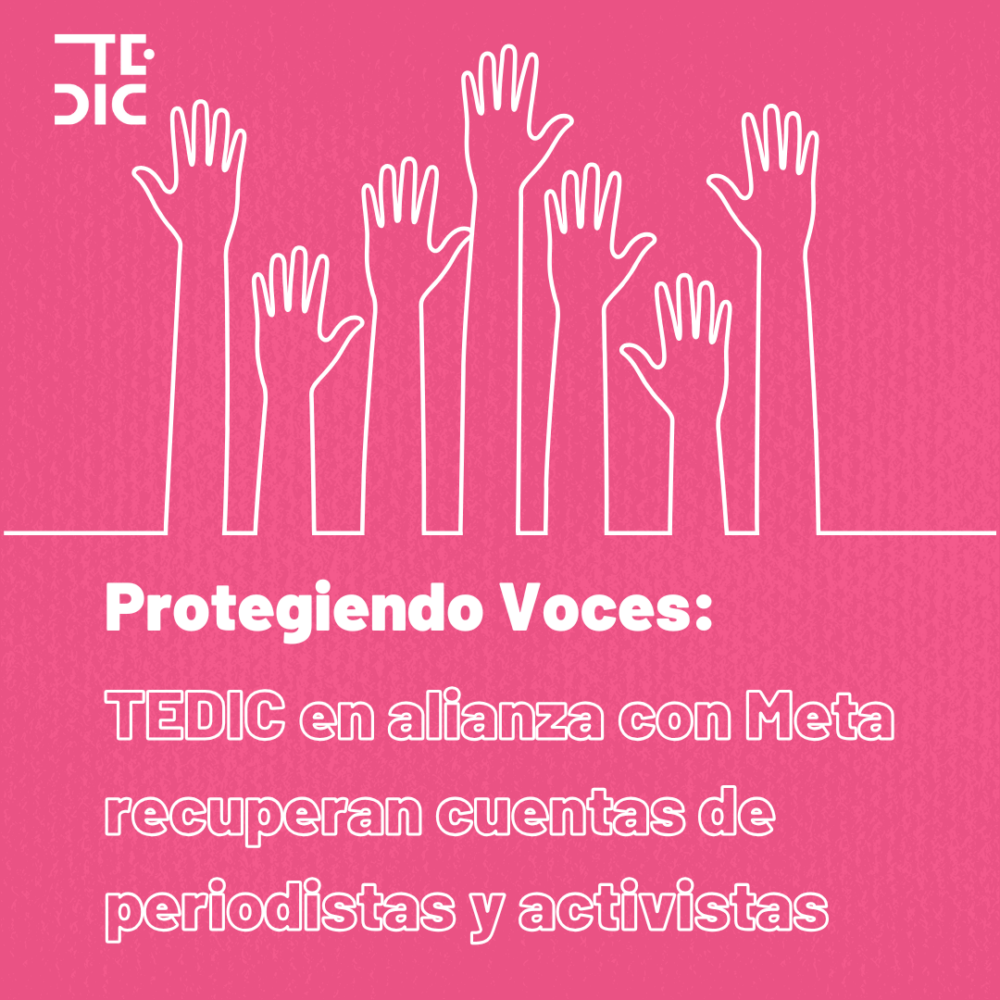 Defending those who defend us
Defending those who defend us